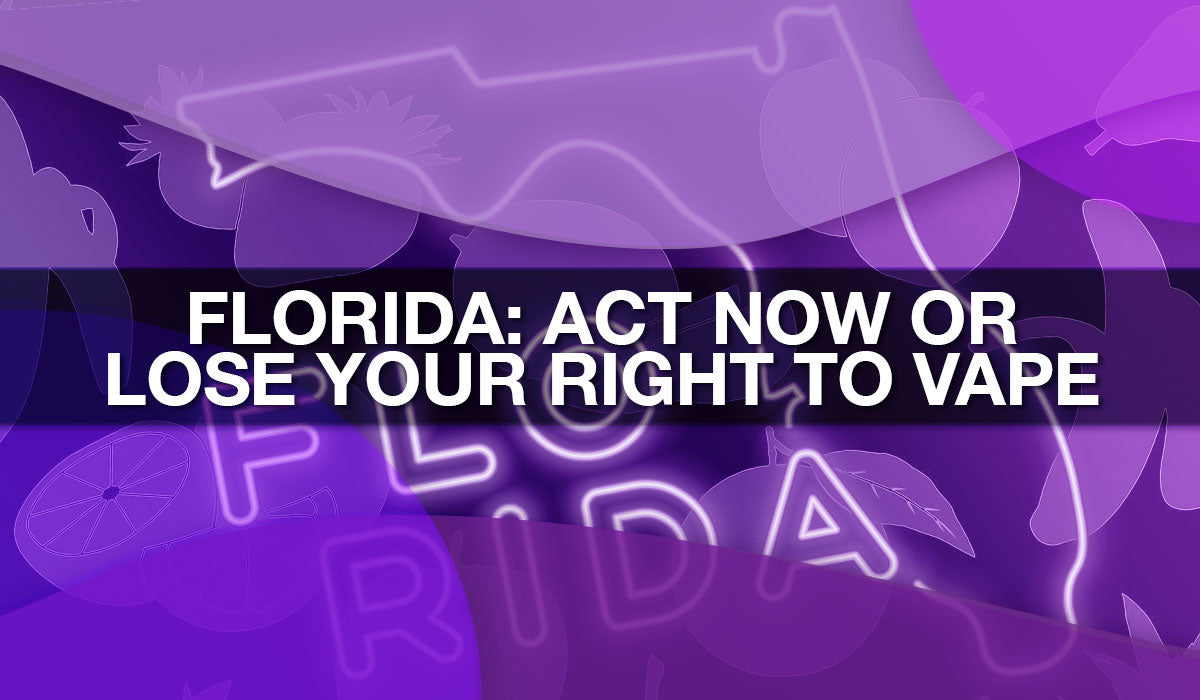
Unveiling the Threat: Florida's Big Tobacco Protection Act
Florida PMTA bill passed: There will be a protest at the governor's mansion: MARCH 7:
2:00 PM
700 N Adams Street
Tallahassee, FL 32303
Contact Governor DeSantis
The Big Tobacco Protect Act has passed the legislature and are now being considered by governor Governor DeSantis. Please take a moment to send a message urging him to VETO Big Tobacco’s protection act. Be sure to include your personal story about switching to vaping.
Keep Making Phone Calls! Talking points are below if you need a little help.
Governor Ron DeSantis
- (850) 717-9337
Talking Points
- Tell your officials that this legislation is more about protecting Big Tobacco profits than improving public health and share your personal story about switching to vaping.
- H1007/ S1006 will close down hundreds of small businesses and put hundreds of workers out of a job.
- The state of Florida doesn’t need to carry water for the FDA by enforcing its disastrous anti-vaping regulations and footing the bill for a monopoly.
- FDA has arbitrarily denied marketing orders for nearly 1 million products and is failing to move forward with authorizing others.
- If H1007/ S1006 are enacted, consumers will only have access to a handful of products that have applications pending, or are authorized by FDA.
- Be brief, be kind, and say thank you 🙂
For more information, we deep-dive this issue in our feature: The Big Lies of Big Tobacco.
PMTA Registry Bill Epidemic
Legislation known among advocates as “PMTA Registry Bills” are being promoted in Tallahassee by incumbent tobacco companies (cigarette makers). If enacted, this law would effectively make the state of Florida an enforcement arm of the Food and Drug Administration empowering state authorities to enforce the disastrous federal anti-vaping regulations. This would put hundreds of independent vape shops out of business, hundreds of workers out of jobs, and thousands of Floridians at risk of returning to smoking, or delaying attempts at quitting.
The vaping community in Florida faces a formidable challenge. A bill described as the Big Tobacco Protection Act has landed in your statehouse. This legislation, if enacted, could have severe consequences for vapers across the state and will deny adult vapers access to the flavors and alternative products they prefer.
It is vital for that the vaping community to unite against this bill.
Visit CASAA.org for more information. Click on the image below to view their Call to Action against the Big Tobacco Protection Act. It's crucial to understand this act's implications and safeguard our vaping rights.
Florida Big Tobacco Protection Act
Legislation known among advocates as “PMTA Registry Bills” are being promoted in Tallahassee by a major tobacco company. If enacted, this law would effectively make the state of Florida an enforcement arm of the Food and Drug Administration empowering state authorities to enforce the disastrous federal anti-vaping regulations. This would put hundreds of independent vape shops out of business, hundreds of workers out of jobs, and thousands of Floridians at risk of returning to smoking, or delaying transition to non-combustible alternatives.
Keep Making Phone Calls! Talking points are below if you need a little help.
Attorney General, Ashley Moody
- Office Phone Main: (850) 414-3300, (850) 414-3990
- Citizens Services 1-866-966-7226 (toll free)
- Citizens Services (850) 245-0140
Senator Keith Perry (SB 1006)
- 352-264-4040 direct
- 850-487-5009 Tallahassee
Representative Toby Overdorf (HB1007)
- 772-221-4961 direct
- 850-717-5085 Tallahassee
Please also take a moment to send a message to your lawmakers urging them to oppose HB 1007/SB 1006. After you’ve made your call, take a minute to follow up with an email using the form provided on this page. Be sure to include your personal story about switching to vaping.
Adult Vapers Hit By Big Tobacco Protection Act
Not only are adult vapers robbed of the freedom to choose the products they want, but their choices become to pay a premium for Big Tobacco manufactured pod kits (available only in less popular tobacco flavors), be funneled back onto to combustible cigarettes, or embrace Nicotine Replacement Therapy (NRT). It are the gums, lozenges and patches that were once again shown to be inferior to vaping in a recent study by the University of Massachusetts Amherst.
And for this privilege of putting money in the coffers of the tobacco industry, vapers get to pay many times for 30ml of e-liquid.

Flurry of Anti-Vaping State Laws
While the vaping industry faces countless challenges from vaping prohibitionists and Big Tobacco, there are a few glimmers of hope. The comprehensive failings of the FDA were laid bare in a recent Federal Court victory for the embattled vaping industry.
Fifth Circuit Court justices hammered the FDA for shifting goalposts, making it impossible for small and independent vaping companies to obtain Premarket Tobacco Authorizations (PMTAs) and distorting the market by only approving Big Tobacco manufactured vape products that feature less popular artificial tobacco flavors.
The Florida Big Tobacco Protection Act represents a new and dangerous legal avenue for the government to drive the vaping products most popular with adults off the market. Fortunately, Governor DeSantis has previously shown significantly more backbone and judgment than most of his peer governors or many legislators with regards to vaping.
In September 2020, DeSantis vetoed a bill that would have banned the flavored e-liquids that make up the backbone of the independent vape shop industry. His decision was proven correct, as youth vaping levels are down 60 percent since 2019 and a recent FDA study shows that cigarette sales have increased in areas with a vape flavor ban.
Governor DeSantis referred to vaping as less harmful and advocated for adult access in December. Florida residents must hope that DeSantis realizes that protecting the children in this case means not turning the state tobacco policy over to the tobacco industry.
Protecting the Children
The reality that flavor bans reduce consumer freedom for adults but do not reduce youth vaping, Tobacco-21 cut off the primary channel for the underage, should serve as a thorough repudiation of the Bloomberg funded Astroturf groups. With plenty of politicians in their pocket, they claim to be protecting the children while pursuing their well-funded quest to annihilate adult access to popular nicotine vapes.
“Protecting the children” is easy if all that is required is cutting off adult access to vapes and snuffing out a habit adopted by millions looking to transition away from smoking. The wealthiest Americans stopped smoking decades ago, making vapers a disproportionately marginalized group far from the levers of power where Michael Bloomberg and anti-Vaping Senators like Romney and Durbin reside.
San Francisco has needle exchanges and is constantly bandying around “safe injection sites” for IV drug users. Illegal drugs. Good luck finding a mango flavored nicotine vape within city limits. Selling that means a big fine.
We would argue that children are better protected by reducing crime. A good place to start is not creating a black market of previously legal nicotine products. Another good way to protect the children is to educate them at an appropriate age about the dangers of high-risk behaviors such as nicotine use. And if the children truly are the future, embracing policies that support a robust economy rather than destroying thousands of American jobs by crushing the independent vaping industry seems like as good of a place to start as any.
The Case for Vaping
Thanks to the ceaseless efforts of groups Bloomberg funded outfits like the Orwellian-named Truth Initiative, adult smokers remain woefully ill-informed about the nicotine products currently on the market.
“It breaks my heart that I’ve met with a lot of well-intentioned physicians who say to me, ‘Vaping is worse than smoking.’ And I say, ‘No, that’s not true,’” said MUSC Hollings Cancer Center’s Benjamin Toll, Ph.D., director of the MUSC Health Tobacco Treatment Program and co-director of the Lung Cancer Screening Program.
Just this week, another a major study published in the Cochrane Database of Systemic Reviews found that e-cigarettes help more tobacco smokers quit than Big Pharma supported nicotine replacement therapies like the patch. Public Health England, which hosts the website Vaping to Quit Smoking, says vaping is 95 percent less harmful than cigarettes.
DeSantis Gubernatorial Record
Governor DeSantis blocking a flavor ban and making commonsense observations about vaping are hardly the norm in the US.
“On this vaping stuff, you shouldn’t. If you don’t do anything, you shouldn’t start to vape. It’s not good for you. But what I’ve found is people that have used cigarettes and got addicted to that, they’re addicted to nicotine when they go to the vape that’s less harmful for them than doing the normal cigarettes.”
“And so, you know, if somebody can take something and do harm reduction, you know, I don’t think that the FDA should ban that. I think people should have the ability, the adults should have the ability to do that. Obviously, kids shouldn’t be doing any of this stuff,” DeSantis stated in December.
At an event on Saturday, presidential candidate Gov. Ron DeSantis was asked for his thoughts on vaping regulation by a member of the Iowa vape advocacy group Iowa FAST.
— American Vapor Manufacturers (@VaporAmerican) December 18, 2023
Kudos to Gov. DeSantis for understanding the reality—vaping is a viable harm reduction tool for adult smokers… pic.twitter.com/gtVphnltBS
Compare his public statements to another high-profile young Governor in Michigan. Governor Whitmer of Michigan inexplicably banned flavored nicotine vapes in response to illnesses caused by black market cannabis carts.
The Michigan nicotine vape flavor ban was implemented while her executive branch failed to Michigan protect consumers by notifying the public that cannabis products were the actual source of EVALI lung disease. To recap this 2019 health crisis, the cause of EVALI was vitamin E acetate found in cannabis vapes.
Not one commercially available nicotine vape tested positive for vitamin E and in fact the formulas unpinning nicotine vapes make it incompatible with this oil-based substance according to the CDC themselves.
These results were released the Friday before Christmas 2019, burying this important revelation on a topic that had been breathless covered for 3 months, and we are still waiting for a retraction from the news media wags who piled on the nicotine vaping industry that autumn.
Key Concerns Regarding the Big Tobacco Protection Act
Hopefully the governor’s veto will not be necessary to kill of The Big Tobacco Protection Act.
Here are some of the major issues with this proposed law.
Restrictions on Flavors
The act targets flavored vaping products, a move that could limit choices for adult vapers. Flavors have played a crucial role in helping smokers transition to vaping and reducing the appeal of combustible tobacco.
Accessibility Issues
The proposed legislation may introduce stringent measures that could make it harder for adults to access vaping products. Such restrictions could inadvertently push individuals back towards traditional tobacco products.
Impact on Small Businesses
Local vape shops and small businesses within the vaping industry may face adverse effects due to increased regulations. This could lead to job losses and economic downturns in the community.
What Can be Done?
Now that we understand the potential ramifications of the Big Tobacco Protection Act, it's time to take action. Here's how you can contribute to the fight against this legislation:
Sign the petition: Sign the petition at CASAA, and don't forget that CASAA provides phone numbers and talking points as well. Here are some other ways to make your voice heard!
Stay Informed
Keep yourself updated on the latest developments surrounding the act. Follow reputable sources and advocacy groups like CASAA to stay informed about the ongoing efforts to combat the legislation.
Engage in Advocacy
Join advocacy campaigns and lend your voice to the cause. CASAA provides a Call to Action, urging residents to contact their representatives and express their concerns about the proposed legislation. Every voice matters, and collective action can make a significant impact.
Spread Awareness
Share information about the Big Tobacco Protection Act within your social circles. Utilize social media platforms, community events, and other channels to raise awareness about the potential consequences of this legislation.
Conclusion
The battle against the Big Tobacco Protection Act in Florida is a critical one for the vaping community. By staying informed, engaging in advocacy, and spreading awareness, we can collectively work towards protecting our rights to access alternatives. Let's unite and ensure that Florida remains a place where adult smokers have the freedom to make informed choices for their well-being.
Unfortunately, these types of state legislation are being pushed heavily by the tobacco industry as the FDA seems incapable of managing regulations and threatens to be further weakened by the SCOTUS case Loper Bright Enterprises v. Raimondo. PMTA based directory laws have passed in Louisiana and Oklahoma, empowering the state to working to impose the arbitrary PMTA process on American business. Expect similar laws to be proposed in every state, as part of a unified front to eliminate the independent vaping industry.
Why Now?
With youth vaping rates down, gold standard studies showing the efficacy of vaping versus nicotine replacement therapy being released, and evidence that flavor bans funnel adult vapers back onto cigarettes, one may wonder why states have decided it is a good time to attempt to a coup de grace that would deny adults vapers access to nicotine products, destroy thousands of jobs, stamp out hundreds of millions of dollars in economic activity?
The issue can be found in the nation’s court systems. As mentioned above, the Fifth Circuit hammered the FDA for their incompetent handling of the PMTAs, an approach so strange and scattershot that a cynic might say it looks an awful lot like regulatory capture.
State Laws New Avenue for Vape Bans with Chevron Under Fire
The elephant in the room is that the vape industry’s lawsuits against the FDA have been thwarted by Chevron deference or the Chevron doctrine. For decades, this now crumbling and controversial façade gave regulators vast leeway to interpret regulation and obliges the lower courts to defer to their judgment.
In response to Loper Bright, a group of vaping companies have filed an amicus curiae brief this summer in support of overturning the Chevron doctrine. Studies have shown that hiding behind Chevron has been a successful method for regulators to defend their policies.
Already on the ropes in a country that is increasingly skeptical of unelected experts stripping citizens of their freedoms, Loper Bright is expected to be the death knell of Chevron. Opponents of vaping and vaping flavors are losing faith in their ability to harangue and harass the FDA into banning products popular with adults. It certainly is not for lack of trying, as even this week elderly Illinois Senator Dick Durbin continues to publicly obsess that e-cigarettes using artificial fruit flavors rather than artificial tobacco flavors are available for sale to adult vapers.
As outlined by CASAA, this new wave of anti-vaping state laws represents a significant threat to the rights of vapers in Florida. It is essential to recognize that this legislation is not just another piece of regulation but a potential game-changer that could limit access to alternatives for smokers.



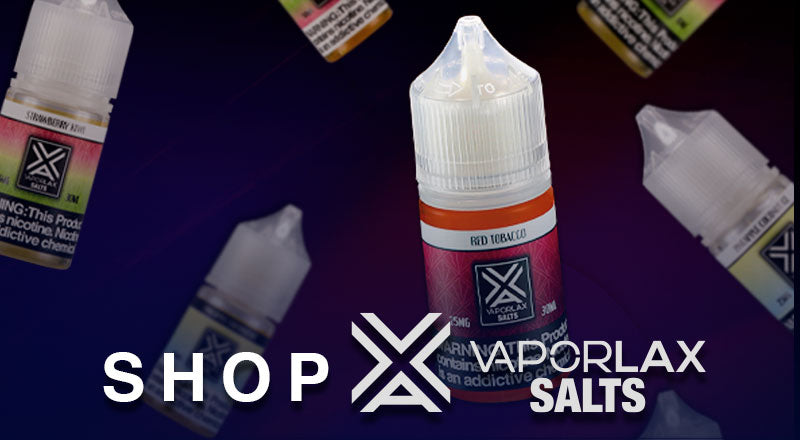
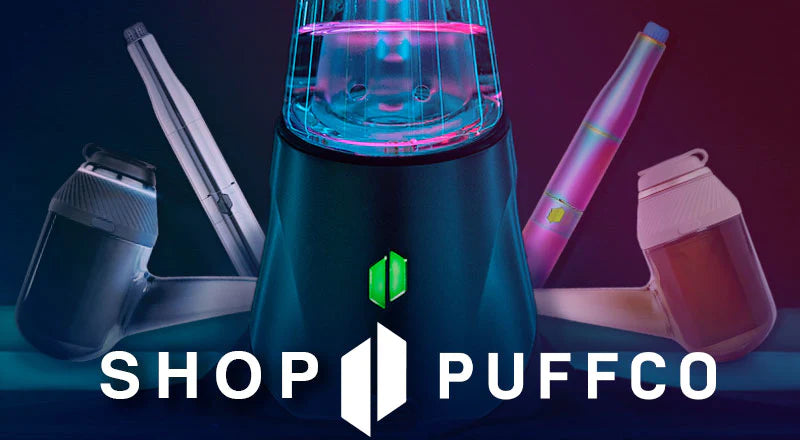



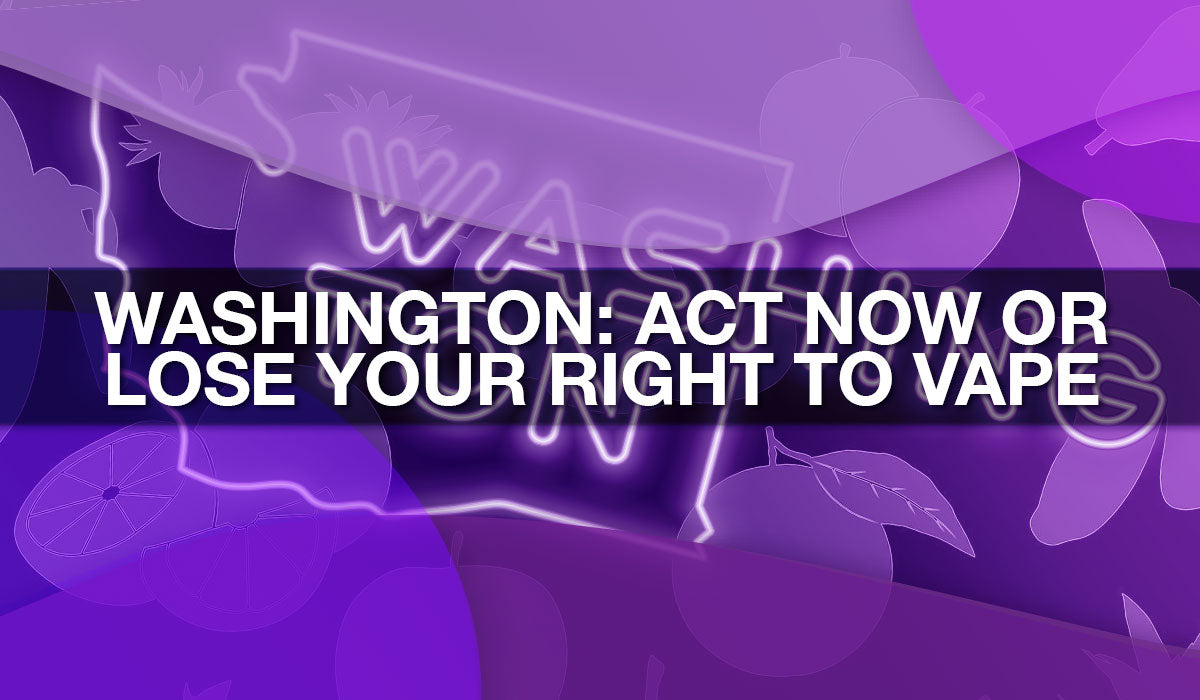
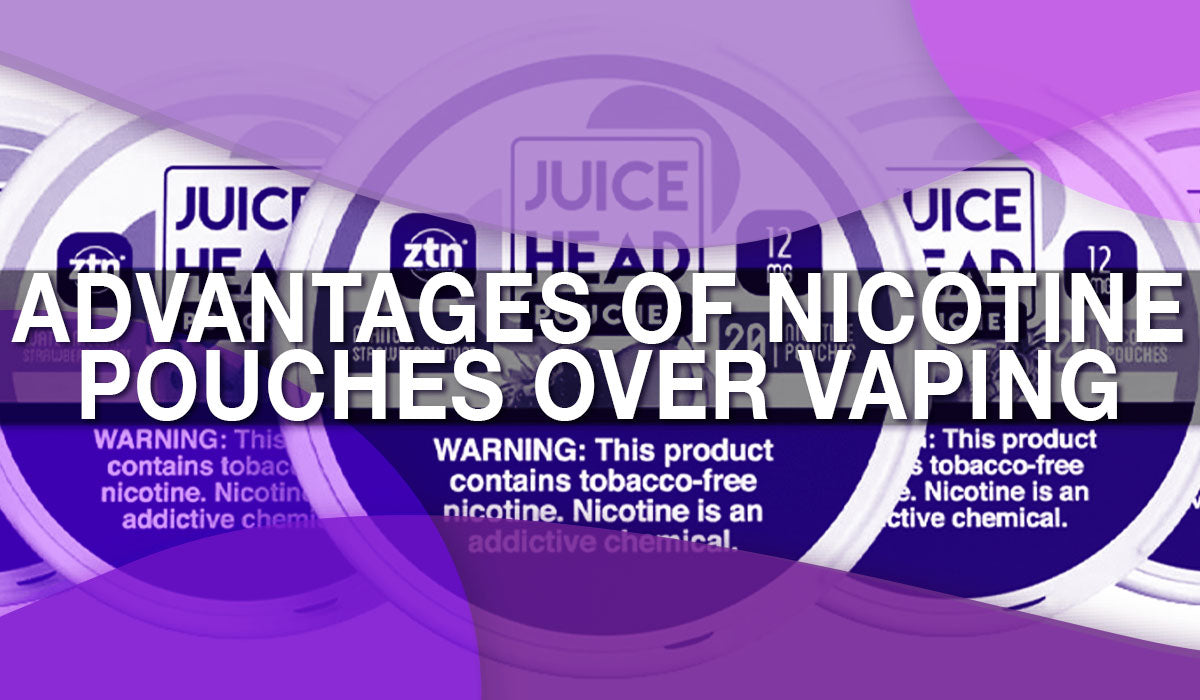
Leave a comment
This site is protected by hCaptcha and the hCaptcha Privacy Policy and Terms of Service apply.